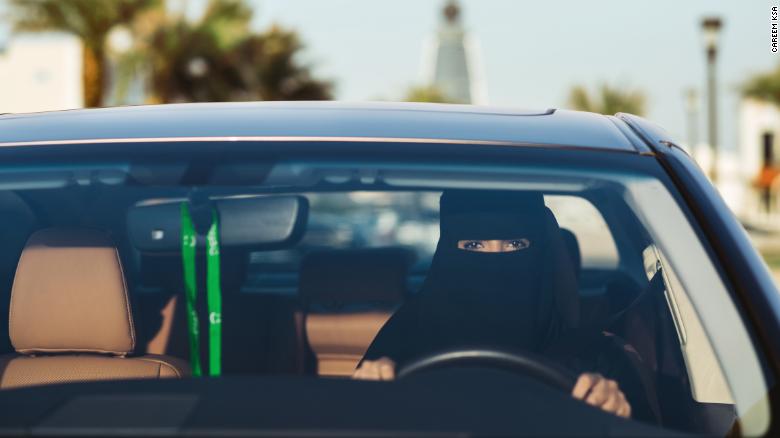Uber and Careem recruit first female drivers in Saudi Arabia
Dubai (CNN)Ride hailing applications in Saudi Arabia are recruiting female drivers, after the Kingdom announced plans to lift the ban on women driving by June 2018.
Female customers currently represent 80% of Uber's Saudi rider base and 70% of business for its Dubai-based counterpart, Careem, according to statistics shared with CNN by both companies. The apps are a lifeline to women with no independent way to get around the Kingdom.
Currently, all drivers employed by the two firms are male -- mostly Saudi nationals driving their privately-owned vehicles.
Following the ground-breaking royal decree that announced plans to lift the ban on women driving last September, however, both companies have been preparing to hire their first female drivers.
Hundreds of women already certified
After the decree was issued, the company launched a series of 90-minute training sessions, in the Saudi cities of Riyadh, Jeddah and Al Khobar, targeting Saudi women who have already acquired valid driving licenses while abroad.
Careem operates in 13 countries across the Middle East, North Africa, and Pakistan and is valued at around $1 billion.
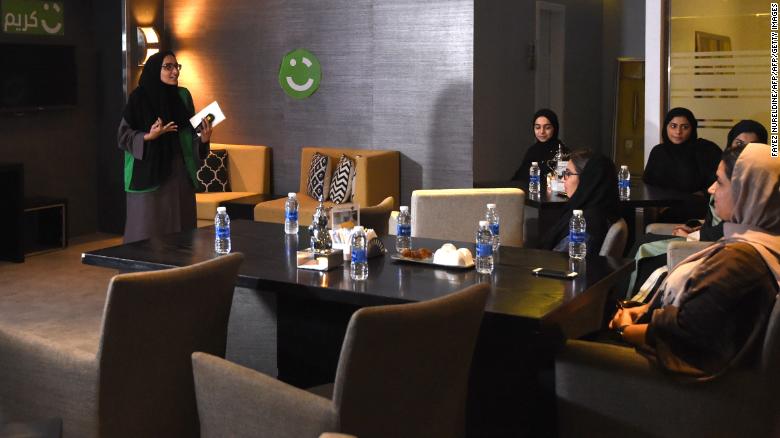
Careem-- which provides its services in 13 countries across the Middle East, North Africa, and Pakistan-- launched in October a series of 90-minute-long training sessions in Saudi, targeting Saudi women who have already obtained valid driving licenses from abroad.
Taught by existing female Saudi employees of Careem (working in administration roles, not as drivers), the sessions educate attendees about Saudi road laws, customer service techniques, and how to use the application's platform.
"From the first moment, we announced our willingness to welcome the ladies to work on our platform," says Abdullah Elyas, co-founder and chief privacy officer at Careem, over email.
Careem has already received thousands of applications from Saudi women interested in becoming drivers, Elyas says. Those who complete the training sessions receive a certificate which acts as a guarantee that they have officially joined Careem's team, bar any changes to Saudi traffic laws, says Careem's public relations manager, Murtadha Alalawi.
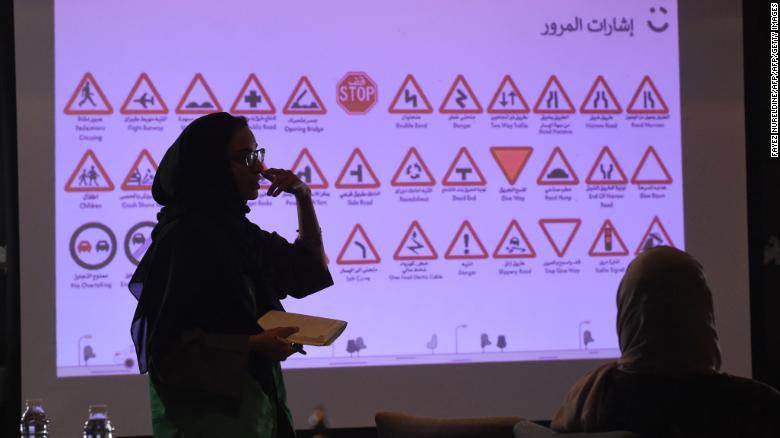
The sessions, taught by Saudi female instructors, educate women interested in becoming Careem "captains" -- as the company refers to chauffeurs under its platform-- about the Saudi traffic law, principles of customer service, and how to use the application's platform.
Uber, meanwhile, has announced plans to open "one-stop-shop" facilities dedicated to recruiting future female drivers, or "partners", as the company calls them. These Green Light Hubs already exist in the country to serve male employees.
"We will partner up with necessary stakeholders to facilitate the paperwork, training access, and access to vehicles, including access to driving schools run by third party partners," says Zeid Hreish, Uber's general manager in Saudi Arabia.
Hreish adds that Uber has also launched "listening sessions" for women in Riyadh, which have been attended by a number of influential figures including the company's CEO Dara Khosrowshahi. The sessions are aimed at "shaping the company's priorities and upcoming plans for women in the Kingdom," and have addressed topics such as problems women could face when driving.
At least 10,000 female drivers by June
Careem plans to hire more than 10,000 "female captains" -- drivers -- by June 2018, says Elyas.
"Female captains will help us provide a better service to many women who want to travel but refuse to be driven by men," he says. Many women from conservative backgrounds currently do not use ride hailing apps, as being driven by an unknown male is unacceptable in their culture.
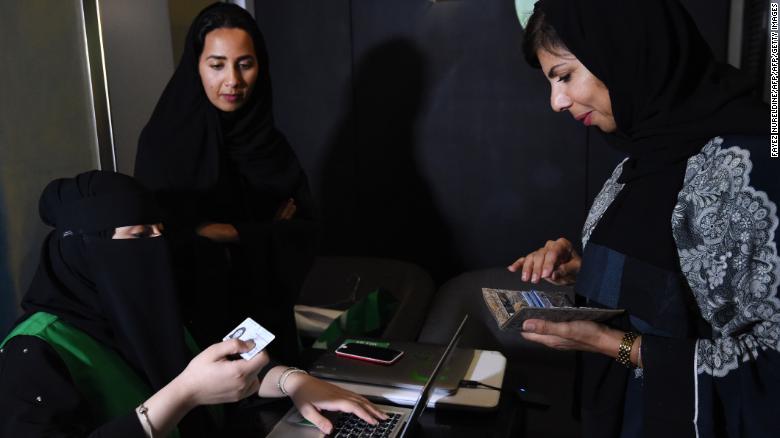
"Captinah's (female captains) will help us provide easier service to many women who want to move but be driven by women," says Careem's co-founder and chief privacy officer, Dr. Abdallah Elyas, in reference to women from conservative backgrounds that do not accept being given a ride by an unknown male driver.
"This means that a new segment of Saudi society that does not use our services will begin (to use it) next June."
Careem and Uber, however, must tread with caution when handling the cultural sensitivities related to gender mixing in the conservative Saudi society. The Dubai-based company, for instance, has announced that the female driver option will be restricted to female riders or families. It will also provide a call masking option, to block the contact numbers between the driver and the customer, to protect privacy.
Such security measures encouraged Amani Alawwami, 28, a Saudi bank employee in Al Khobar, to join the first workshop Careem ran last October.
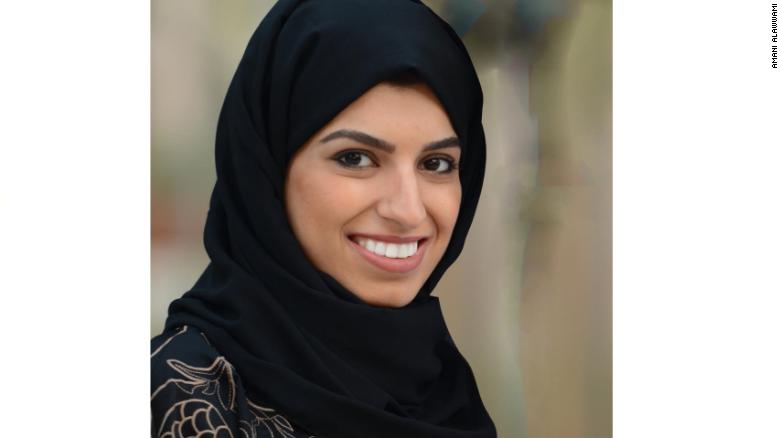
Amani Alawwami (28), a Saudi employee working at a bank in Alkhobar, joined the first workshop Careem offered in Saudi."I want to be there to help when someone is in need for a lift, and it is a beautiful feeling to be among the first female captains in my country."
"The first thing that made me think about working for Careem was our great need to drive," says Alawwami. "As women in Saudi, we need a man for our smallest commuting needs, and the local taxi service is not sufficiently available where I live."
Alawwami got her driving license while studying in the United Arab Emirates.
"Ride hailing applications have helped us a lot," she says. "I want to be there to help when someone is in need of a lift, and it is a beautiful feeling to be among the first female captains in my country."
The mother-of-one says that her husband and family never opposed women being allowed to drive. She believes that "the announcement of the government's plan to lift the ban has caused many of those who said they opposed females driving to become supportive of it overnight."
Saudi's national transformation
Uber and Careem hope their recruitment drive of women can support the Saudi government's efforts to reduce the country's unemployment rate, which the Saudi General Authority for Statistics estimates to be at 12.8%.
A Careem captain driving the lowest class of car for eight hours a day makes between $1,600 and $2,100 per month, according to Elyas -- less than the Kingdom's average monthly income of $2,640 a month, according to Saudi General Authority for Statistics.
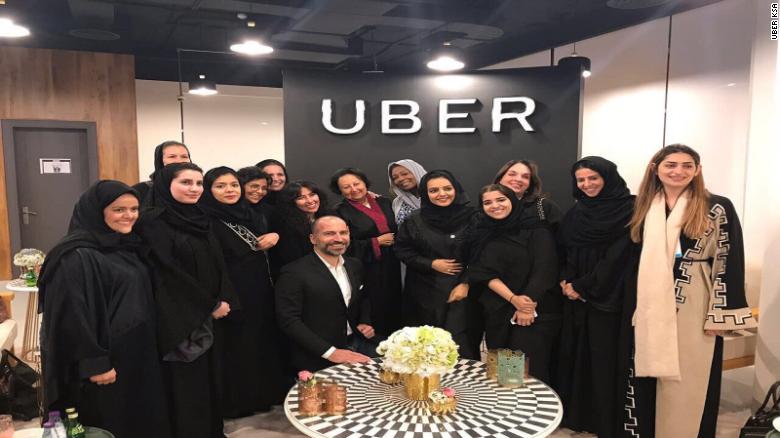
Uber has also launched a series of regular "listening sessions," attended by a number of influential female representatives in Saudi, aimed at "shaping the company's priorities and upcoming plans for women in the Kingdom," according to Uber's general manager in Saudi, Zeid Hreish.
Still, the government has been supportive of the ride-hailing apps. In mid 2016, the Saudi Public Investment Fund (PIF) invested $3.5 billion in Uber, the largest single investment ever made in a private company, as it sought to diversify its portfolio amid plummeting oil prices.
Economic diversification is one of the pillars of the Kingdom's Vision 2030 strategy, which was announced in 2016 by the country's now 32-year-old crown prince, Mohammed bin Salman, and aims to decrease reliance on oil and boost employment of the younger Saudis.
More than one million Saudis are currently listed as job seekers, according to the General Authority of Statistics.
No special road rules for Saudi women
Abdullah Al-Mutairi, the spokesperson for the Saudi Public Transport Authority (PTA), says the "same regulations governing the licensing of men who work in transportation will be applicable to women."
"Those regulations include having a valid Saudi driving license and insurance, and being at least 20 years old," he says. Furthermore, the PTA plans to hire female drivers in public transport roles "under the condition of (the women) being sufficiently trained to drive vehicles and various means of transportation, including buses."
"The Saudi public transportation environment needs to acquire female chauffeurs who are sufficiently trained and qualified to contribute directly in vital duties," he adds.
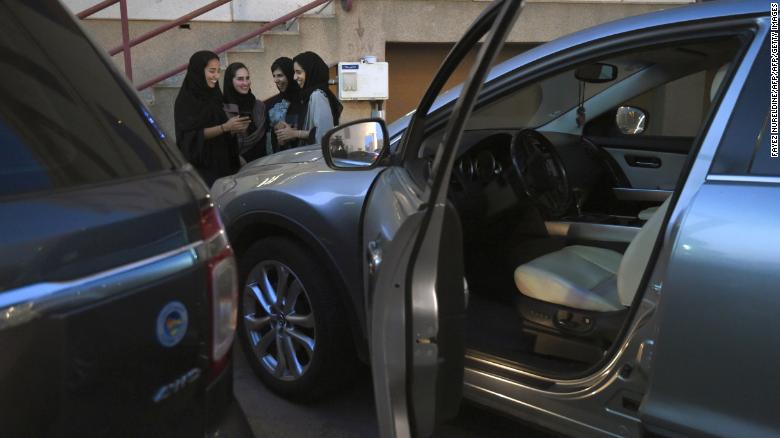
Saudi women take part in a training programme for new female drivers at Careem, a chauffeur driven car booking service, at their Saudi offices in Khobar City, some 424 kilometres east of the Saudi capital of Riyadh, on October 10, 2017.
"Those duties include transporting female students and teachers who do not wish to drive their own vehicles, and filling other vocational opportunities that require the presence of a woman trained to drive in a qualified and secure way."
Currently, Saudi's public transport culture is negligible, with the intracity buses that do exist being mainly used by blue collar workers and poorer male expats, while women either rely on apps, private drivers, or taxis. But plans are afoot to broaden public transport options across the kingdom.
One snag in all this, however, could be that Saudi labor laws currently stipulate that women -- apart from those working in medical fields, at charities, as accountants in retails shops, or for their family business, among other exceptions -- should not work in the hours between sunset and sunrise.
It is not clear how strictly this law will be applied, and whether working as a driver will be considered a job in the strict sense. Alalawi says Careem is still "awaiting the regulations and laws governing the sector to be implemented."
Khalid Abalkhail, a spokesman for the Ministry of Labor and Social Development, told CNN: "Facilities are allowed to let women work night shifts, as long as they do not go beyond the maximum limit of daily working hours and are not kept at their workplace beyond 11pm."
Under Saudi labor law, a worker may not work for more than eight hours a day, or more than 48 hours a week.
News Courtesy: www.cnn.com

